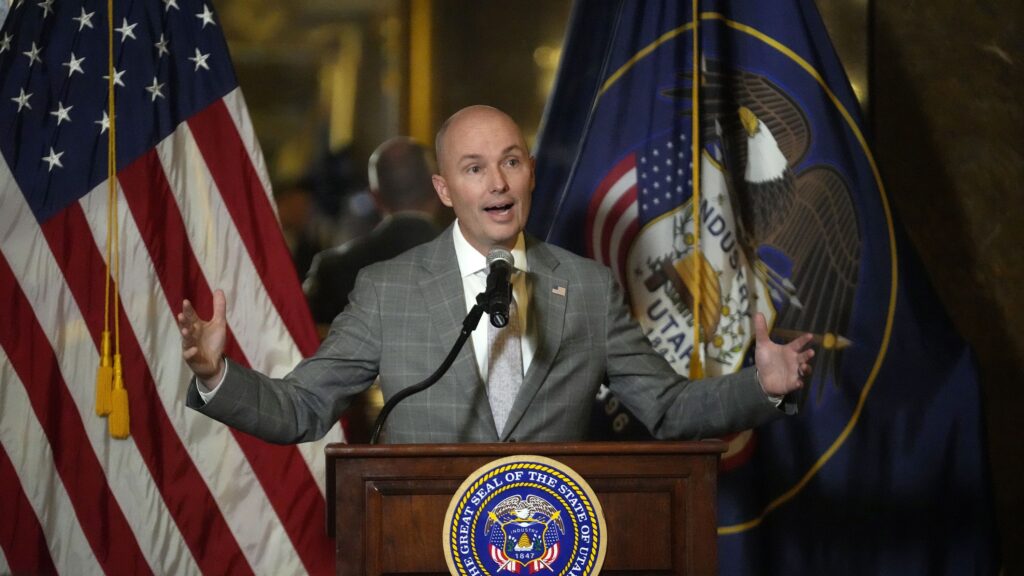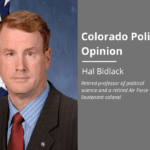Reflections on the NATO summit | SLOAN


Can someone please explain to me why some government officials from Western democratic countries feel the need to (literally) embrace, kiss, or bow to despots? Treasury Secretary Janet Yellen took a trip to Beijing last weekend, and the first thing she does is bow not once, not twice, but three times to the Chinese Vice Premier He Lifeng, who, of course, remains upright the entire time. It rather reminded me of an account of Fidel Castro’s stop in Spain in 1984, on his way back from Soviet Premier Yuri Andropov’s funeral. A photographer recorded the moment as the Spanish prime minister greeted him, er, warmly, at the airport with an embrace that seemed far more fitting for a long-lost brother, or a prodigal son.
I mean, I get the need for a bit of diplomatic stagecraft, but is it necessary to go to such lengths? Ronald Reagan was entirely cordial and proper when he met with Gorbachev, but he was never deferent. In fact, Reagan deliberately upstaged him the first time they met on a frigid morning in Geneva in 1985, walking over energetically in a nice suit with no coat to greet the Soviet leader, who was bundled up like a toddler on Halloween. Four years later the Berlin Wall came down. What did Yellen get? She went home with new Chinese export controls on critical minerals, after having cemented several concessions to the CPC. Brilliant.
Stay up to speed: Sign-up for daily opinion in your inbox Monday-Friday
At the other end, over-familiarity sends a different message when applied to our allies. President Joe Biden met with King Charles III en-route to Vilnius for the NATO summit, and not only shook the King’s hand, but clasped him on the arm as if he were an old drinking buddy. Now, this is not quite at the level of disrespect offered by Canadian Prime Minister Justin Trudeau’s insufferable father, who once arrogantly performed an irreverent pirouette for reporters in front of her late Majesty Queen Elizabeth II on one of her official visits. And, yes, his Majesty did encourage the breach of protocol by offering his hand first. But it still hints at Biden’s anti-UK bias as both a semi-professional Irishman and a leftist. At any rate, his anti-British bias was expressed in more important ways later in the week.
The NATO summit in Lithuania this week was, in large measure, a success. First and foremost, it presented a remarkably united NATO alliance, something which is never a given, and which certainly irks and concerns Vladimir Putin. Second, Sweden was admitted into the club, having overcome the intransigence of Turkey’s Recep Tayyip Erdogan. This is a blow to Russia, and now all of the Baltic nations are members, severely restricting Russian freedom of aggressive movement in the Baltic Sea.
The alliance also made the correct judgement on Ukrainian membership. NATO clarified Ukraine will, one day, be a member of NATO, but refused to put that membership on a set time frame. Given the situation, this is the proper thing to do. It’s evocative of the principle of “strategic ambiguity,” which has directed U.S. policy toward Taiwan more or less since the early 1980s. There was a lot of bureaucratese about Ukraine first meeting certain “conditions” regarding democratic reforms and the like, and that verbiage is regrettable in that such considerations are extrinsic to legitimate U.S. and NATO security concerns.
Nonetheless, full NATO membership for Ukraine at this point makes little sense and bears far too many hazards; the obvious one being that such membership would trigger Article 5 commitments and draw NATO countries into a shooting war with Russia. More subtly, it would also grant legitimacy to one of Putin’s ostensible justifications for his blind aggression, and likely serve to foment the national cohesiveness that Putin hoped his bloody misadventure would bring to Russia and foster an unwelcome (for the West) sense of national unity at a time when the regime seems on the verge of coming apart at the seams. Henry Kissinger was right, as he generally is, that the war means Ukraine will be a member of NATO; but just not quite yet.
There were two blemishes to come out of the summit. Jens Stoltenberg has been asked to stay on as secretary-general for another year, which is a good thing, but at some point, his replacement will have to be named. The best, and most qualified potential successor was Ben Wallace, the UK defense minister; but his nomination has been fervently opposed by Biden, betraying not only his animosity to Britain, but to good sense. The candidate Biden reportedly favors, Ursula von der Leyen, did not exactly shine as Germany’s defense minister.
One other point: even as NATO celebrated the majority of its members meeting their defense spending commitments there was one glaring exception – Canada, which only allots a paltry and embarrassing 1.38% of GDP on defending itself. Trudeau, who’s father worked tirelessly to dismantle Canada’s proud military in the 1960s and 1970s, may want to spend a little more time leading his nation in a dangerous world than trying to emulate that pirouetting disgrace of a PM.
Kelly Sloan is a political and public affairs consultant and a recovering journalist based in Denver.













